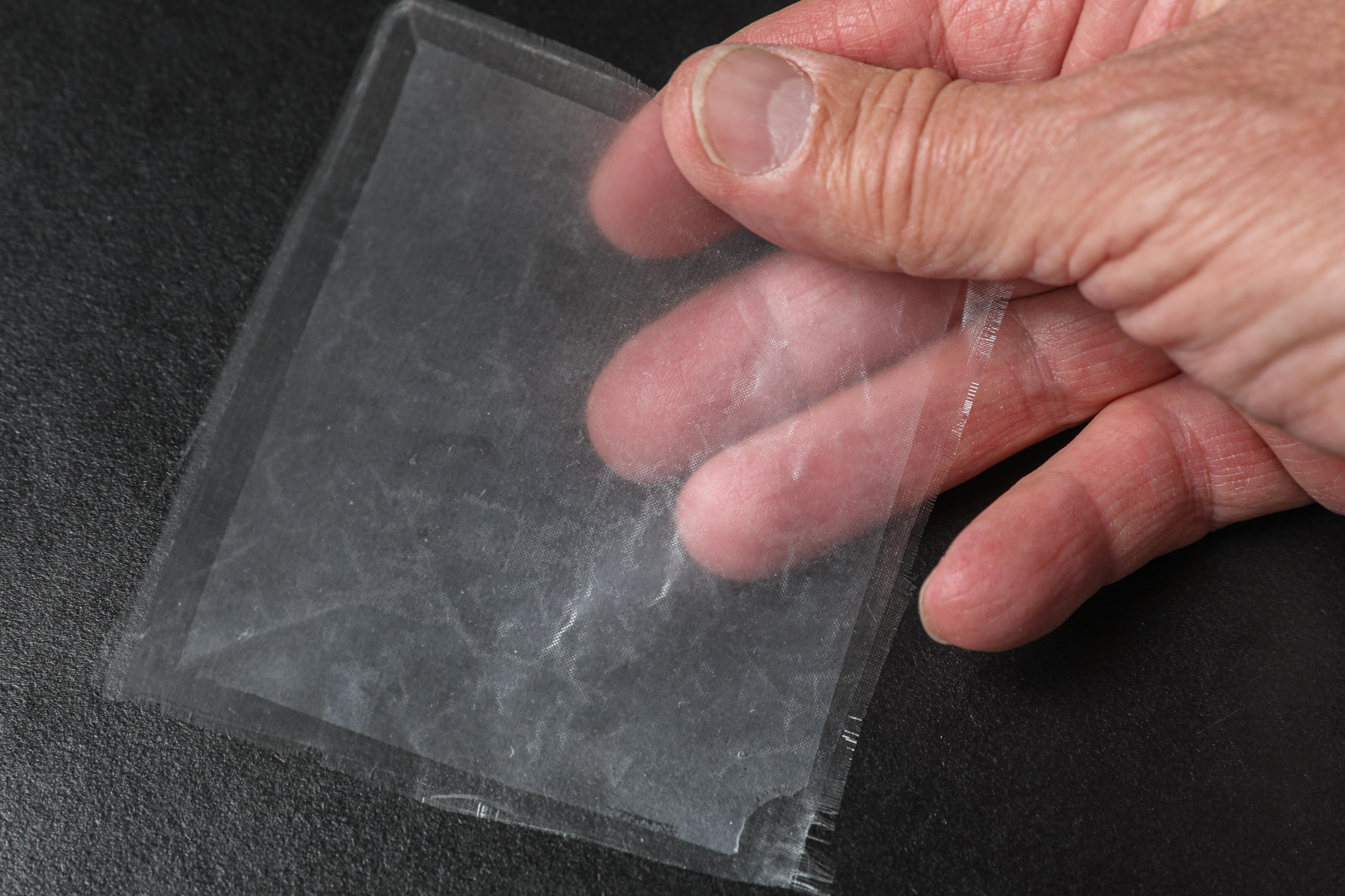
Swiss develop first see-through surgical mask

A fully transparent surgical mask that filters out germs but allows facial expressions to be seen has been developed by Swiss scientists. Caregivers should be able to wear them from the summer of 2021.
“For some segments of the population – like children, the elderly and the [hard of hearing] – the [current] masks are a major obstacle to communication,” said the Swiss Federal Laboratories for Materials Science and Technology (EMPA) in a statement on Tuesday.
Along with researchers at the Swiss Federal Institute of Technology Lausanne (EPFL), EMPA has been working for two years on a completely transparent surgical mask.
They have now finalised a biomass-based material to manufacture the so-called HelloMasks and have created a start-up called HMCARE, based on the Biotech campus in Geneva, to market them.
After completing a CHF1 million ($1.05 million) fundraising round, HMCARE is now ready to develop the industrial process. Discussions are under way for a planned market launch in early 2021.
Investors were in such a hurry that “we had to turn down offers”, says Thierry Pelet, head of the HelloMask project at EPFL’s EssentialTech Center. EMPA admits that the Covid-19 pandemic made fundraising easier.
Membrane
The HelloMasks are intended to replace the tri-fold green or white ones that healthcare workers usually wear. This protection could be worn by anyone, although they’re designed primarily to make the contact between caregivers and patients less impersonal.

“You can find prototypes of masks that are partly transparent, but they’re just normal masks with some of the fabric replaced by clear plastic,” Pelet says.
Since that plastic isn’t porous, however, it makes it hard for the wearer to breathe and fogs up easily. The EMPA and EPFL researchers spent two years finding the right combination of transparency, resistance and porosity. They eventually came up with a membrane made from a polymer developed specifically for this application.
Because the new masks will be disposable for optimal efficacy, like existing surgical masks, the researchers focused from the start on finding a material that was either recyclable or biodegradable. “Our masks are made at 99% from a biomass derivative, and we’ll keep working on them until they’re completely eco-friendly,” Pelet says.

More
Why the Swiss are reluctant to wear face masks
https://www.empa.ch/web/s604/hello-mask-hmcareExternal link

In compliance with the JTI standards
More: SWI swissinfo.ch certified by the Journalism Trust Initiative






























You can find an overview of ongoing debates with our journalists here . Please join us!
If you want to start a conversation about a topic raised in this article or want to report factual errors, email us at english@swissinfo.ch.